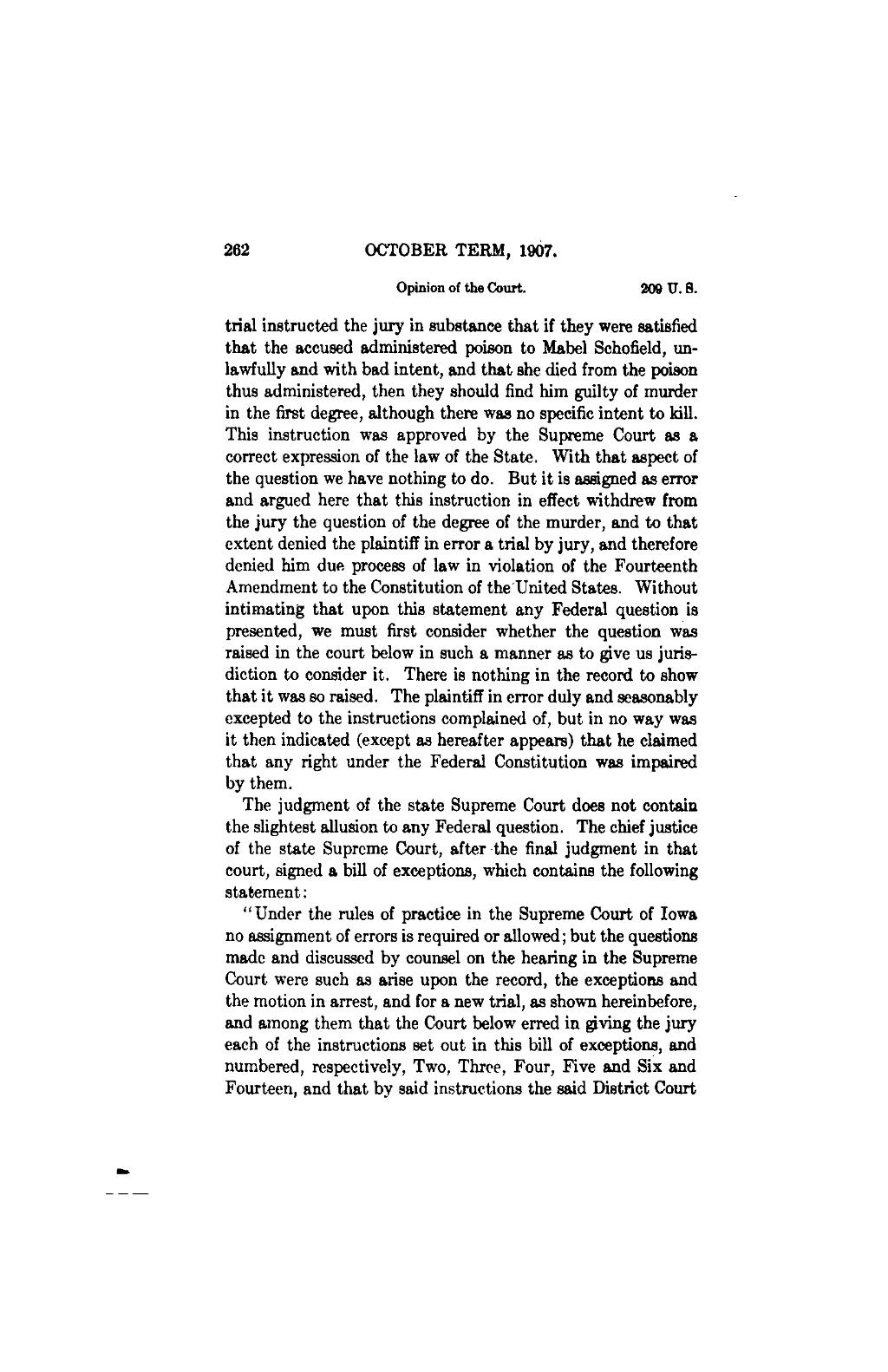OCTOBER TERM, 1907. Opinion of the Court. ? U.S. trial instructed the jury in substance that if they were satisfied that the accused administered poison to Mabel Schofield, un- lawfully and with bad intent, and that she died from the poison thus administered, then they should find him guilty of murder in the first degree, although there was no specific intent to kill. This instruction was approved by the Supreme Court as a correct expression of the law of the State. With that aspect of the question we have nothing to do. But it is assigned as error and argued here that this instruction in effect withdrew from the jury the question of the degree of the murder, and to that extent denied the plaintiff in error a trial by jury, and therefore denied him due process of law in violation of the Fourteenth Amendment to the Constitution of theUnited States. Without intimating that upon this statement any Federal question is presented, we must first consider whether the question was raised in the court below in such a manner as to give us juris- diction to consider it. There is nothing in the record to show that it was so raised. The plaintiff in error duly and seasonably excepted to the instructions complained of, but in no way was it then indicated (except as hereafter appears) that he claimed that any right under the Federal Constitution was impaired by them. The judgment of the state Supreme Court does not eontala the slightest allusion to any Federal question. The chief justice of the state Supreme Court, after-the final judgment in that court, signed a bill of exceptions, which contains the following statement: "Under the rules of practice in the Supreme Court of Iowa no assignment of errors is required or allowed; but the questions made and discussed by counsel on the hearing in the Supreme Court were such as arise upon the record, the exceptions and the motion in arrest, and for a new trial, as shown hereinbefore, and among them that the Court below erred in giving the jury each of the instructions set out in this bill of exceptions, and numbered, respectively, Two, Three, Four, Five and six and Fourteen, and that by said instructions the said District Court
�
